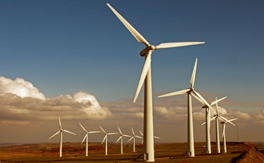ICNARC report on COVID-19 in critical care
<p>This report presents analyses of data on patients critically ill with confirmed COVID-19 reported to ICNARC up to 4pm on 16 April 2020 from critical care units participating in the Case Mix Programme
<p>This report presents analyses of data on patients critically ill with confirmed COVID-19 reported to ICNARC up to 4pm on 16 April 2020 from critical care units participating in the Case Mix Programme

This new report by HFP warns that Hindu-Kush Himalaya region, the so-called Third Pole is a
Coal will be the biggest single source of electricity for decades to come. Yet the EU is doing far too little to encourage the take-up of carbon capture and storage, a technology which could make coal a low-carbon fuel. This failure threatens not only Europe
Around the world, global water problems continue to grow, adversely affecting people, prosperity and national security. This policy brief examines the scope of the problem and identifies a number of important policy considerations for addressing the issues related to this complex matter. While the management of the world
This paper addresses climate change and slum-based poverty among the challenges of sustainable urbanisation. It asserts that the slums will also be the locations most vulnerable to hazards linked to extreme weather, such as flooding or hurricanes, and thus advocates for hazard mitigation strategies to have a

This latest paper focuses on the challenges concerning finance and investments in renewable energy. Says that financiers and policymakers need to work much more closely together, to develop the agenda required to deliver scaled up capital flows into renewable energy.
This report briefly outlines the nature of the global corporate risk around water. It says that businesses around the world must act now if they are to fend off the threat of a growing water shortage and highlights ways in which they can better manage this growing risk. <br>
In the simplest terms, water stress occurs when the demand for water exceeds the available amount during a certain period or when poor quality restricts its use. A March 2010 report by World Bank
This paper explores the pros and cons of biomass and the logistics of switching to other fuels in developing countries. Calculations reveal that there is more than sufficient biomass, not only to maintain present consumption, but also to expand its use considerably. A principal cause of global warming is the increased use of fossil fuels.
Foundation for International Environmental Law and Development (FIELD) held a Workshop on international decision making following Copenhagen from 24 - 25 March 2010 at London.

The Marine Environment Protection Committee (MEPC) of the International Maritime Organization (IMO) held its 60th session from 22-26 March 2010, in London, UK, and focused on the reduction of greenhouse gas(GHG) emissions from international shipping.